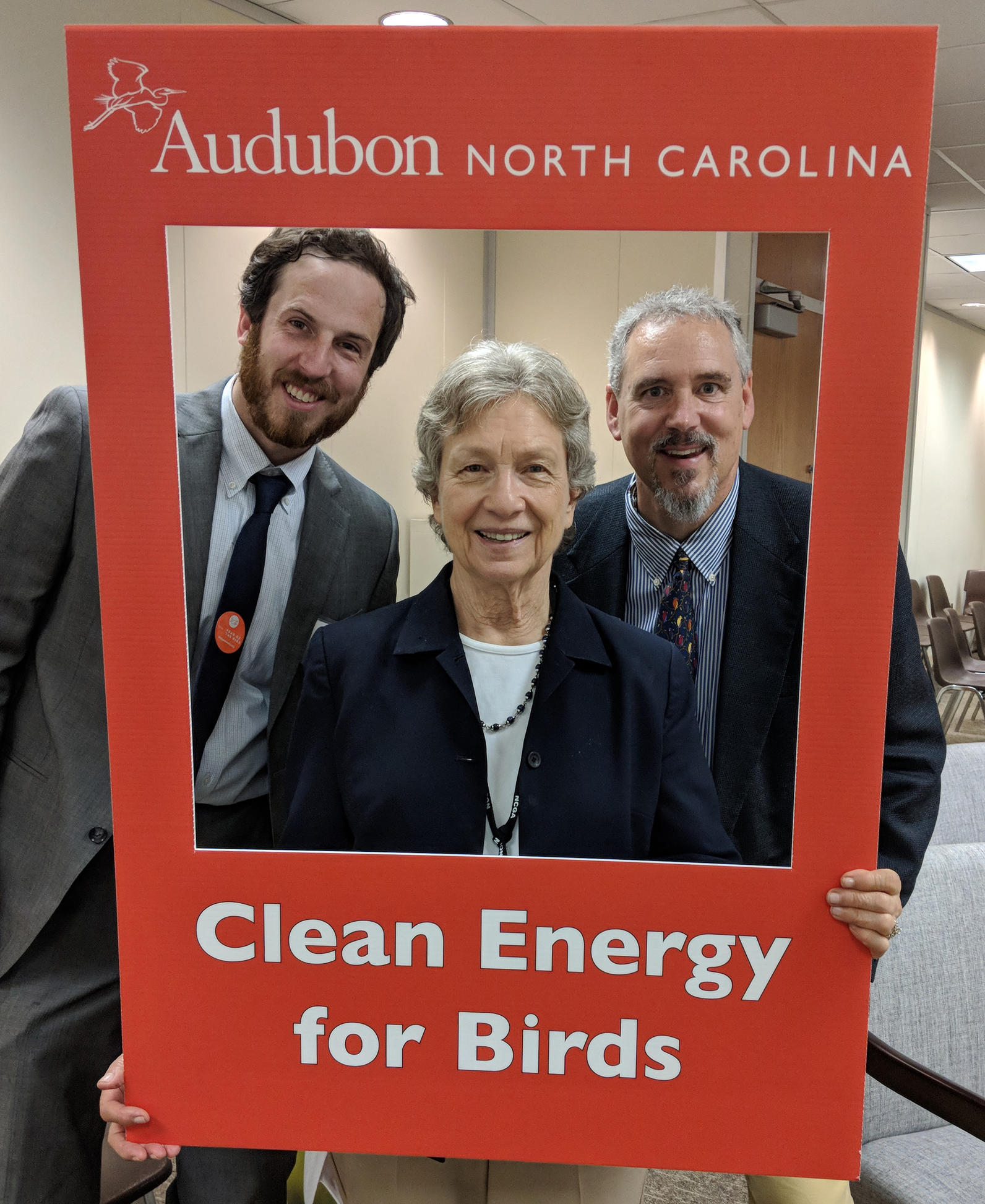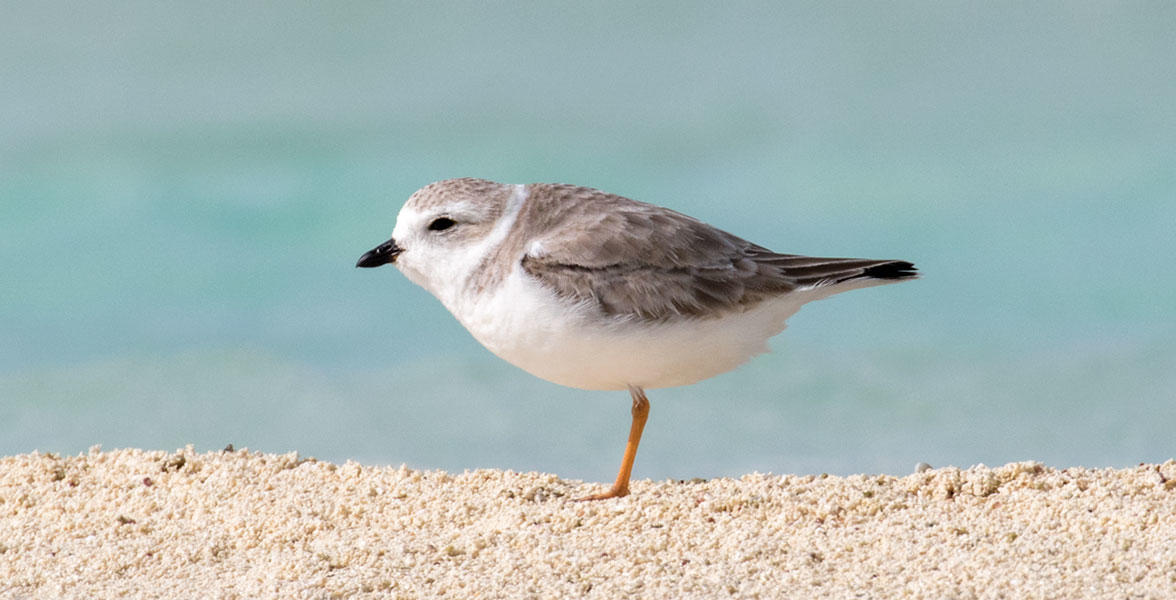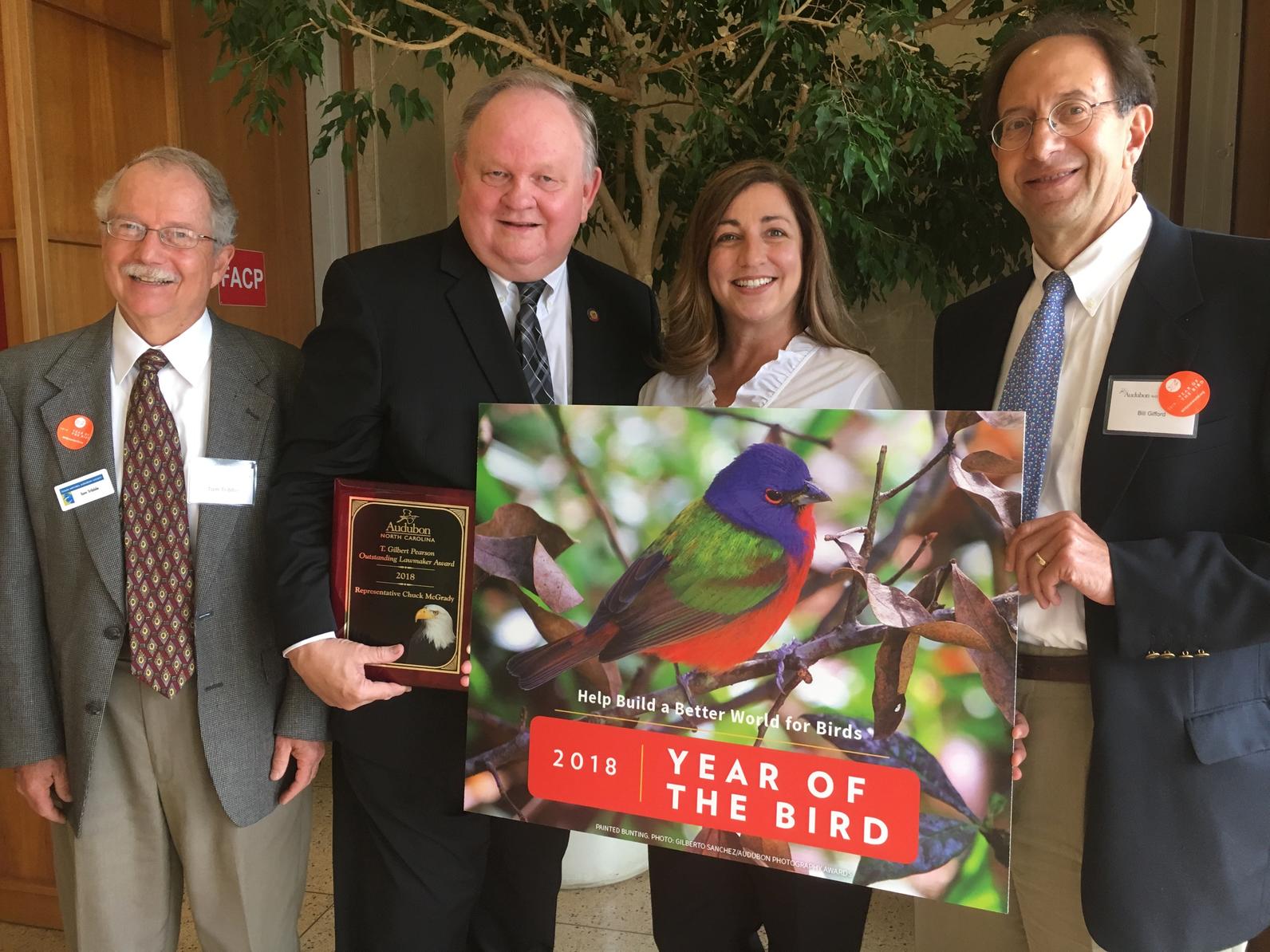Last week, the North Carolina General Assembly adjourned its “short session” until November 27 to allow lawmakers to get back home and campaign ahead of the November elections.
Audubon has made significant progress on our legislative priorities this year, due in large part to the growing sophistication of our Ambassador program and grassroots engagement.
To everyone that has partnered with Audubon to visit lawmakers, make phone calls, send letters, gather petition signatures, write letters to the editor, or respond to our Action Alerts, THANK YOU!
We saw record numbers of Audubon members meet with lawmakers in their hometowns and in Raleigh to advocate on behalf of birds. Early, sustained, relationship building with lawmakers and their staff will bear fruit for many years to come. One highlight was this year’s Lobby Day, which included the work of our Advocates to deliver over 3,000 names in support of responsibly sited wind energy!

Here is how Audubon fared this legislative session on our 2018 state policy priorities:
Conservation Funding
North Carolina’s conservation trust funds are critical to protect Important Bird Areas and other natural areas that birds depend upon for food and habitat. Funding for the Clean Water Management Trust Fund (CWMTF) and the Parks and Recreation Trust Fund (PRTF) stayed fairly level from last year’s budget, at $22.7 and $22.4 million respectively. While we were hoping for a modest increase in both funds this year, in a time of overall budget tightening and a budget “off-year,” these levels still indicate strong support for conservation in the Governor and Legislature’s budgets.
One bright spot in this year’s budget was a significant one-time increase in funding of $13 million for the Agriculture Development & Farmland Preservation Trust Fund to help the state secure federal matching funds to prevent development of farmland and forest surrounding military bases in Eastern NC.
Aside from direct appropriations to these conservation trust funds, individual earmarks were also made to 30 local park projects totaling $3.38 million. An additional $2.5 million was provided to enable the protection of Bird Island adjacent to Sunset Beach.
Audubon is now a member of both the Land for Tomorrow and NC Forever coalitions, which are working to substantially increase conservation funding in future years. A new report released by NC Forever includes critical information to educate state lawmakers on the importance of conservation funding and state rankings that illustrate North Carolina’s conservation funding levels in comparison to other states.

Protecting Our Coast from Terminal Groins
Installation of terminal groins on the few remaining natural inlets on North Carolina’s barrier islands would be devastating to imperiled coastal shorebirds like the Piping Plover and Red Knot. Audubon held the line again this year to ensure continuation of the ban on use of state taxpayer dollars for terminal groin projects. Ongoing education of lawmakers about the questionable performance and high costs of terminal groin projects will be critical into the foreseeable future.
Outside of the legislative building, Audubon and our partners have made significant progress in defeating proposed terminal groin projects through a mix of community engagement and education, regulatory review, and – as a last resort – litigation. Most recently, the Town of Holden Beach elected not to move forward with their proposal to construct a terminal groin at Lockwood Folly Inlet. In their decision to withdraw their permit for the project, the Town noted the decision by Figure Eight Island homeowners not to move forward with construction of their terminal groin project and the litigation surrounding the Ocean Isle Beach terminal groin project brought by the Southern Environmental Law Center and Audubon.
It is too early to declare victory on all terminal groins, but it does feel like an important tipping point has been reached where coastal communities are realizing that terminal groins may not be in their best interest. As we had hoped, early intervention by Audubon and our partners seems to be acting as a deterrent against future projects.
Growing Responsible Wind Energy
Additional good news to report – no new bills emerged that would extend the existing moratorium on wind energy projects in Central and Eastern North Carolina, set to expire at the end of the year. The moratorium, introduced last year by Sen. Harry Brown, unfairly penalizes wind developers that use proper siting and monitoring practices to safeguard birds and other wildlife.
To further the growth of bird-friendly wind energy in North Carolina, Audubon and our partners made major investments this year to educate lawmakers on existing state and federal laws that protect North Carolina’s natural resources, wildlife and military bases. While no attempts have been made to extend the wind moratorium thus far, we will need to continue to educate lawmakers and remain vigilant when lawmakers return to Raleigh following the November elections.

In summary, Audubon achieved significant outcomes in conservation funding, coastal protection and clean energy this year. We couldn’t have done it without our passionate supporters and dedicated advocates. Thank you!!!



